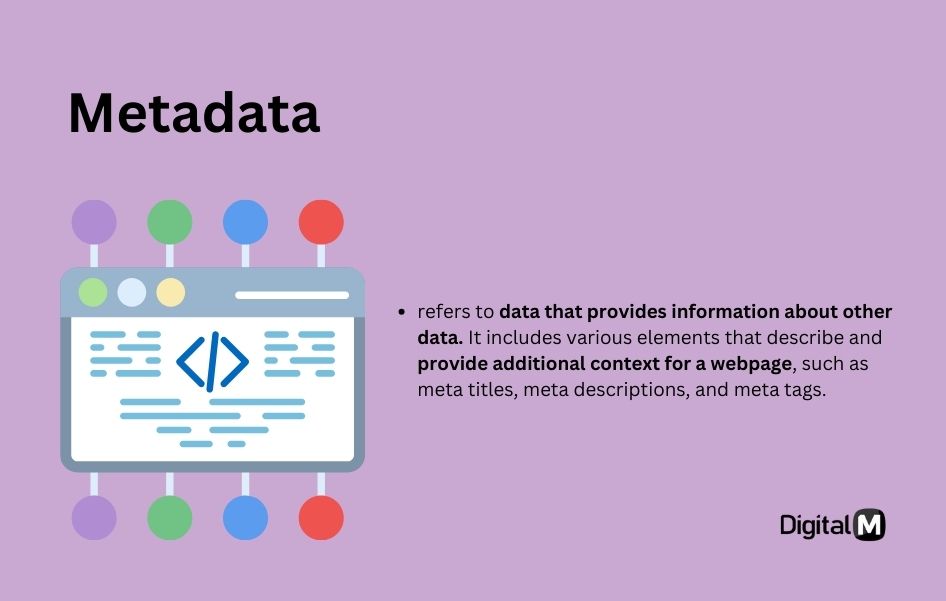Metadata
Metadata, in the context of websites and digital content, refers to data that provides information about other data. It includes various elements that describe and provide additional context for a webpage, such as meta titles, meta descriptions, and meta tags.
Metadata is like the information about a book you find on its cover or in the library catalog. For websites, it’s the data that describes and summarizes what a webpage is about.

Key Points:
Meta Titles: A concise title that appears in search engine results and at the top of a browser tab when the page is open.
Meta Descriptions: A brief summary that appears below the meta title in search engine results, providing more context about the page’s content.
Meta Tags: Keywords or phrases that describe the content of a webpage. While their SEO impact has diminished, they are still used in some contexts.
Significance:
Search Engine Optimization (SEO): Well-crafted metadata can influence a webpage’s visibility in search engine results and attract users to click.
User Experience: Clear and relevant metadata helps users understand what a webpage is about before clicking on it.
Social Media Sharing: Metadata is often used when sharing webpages on social media platforms, influencing how the content appears in posts.
Best Practices:
Relevance: Ensure meta titles and descriptions accurately reflect the content of the webpage.
Length: Keep meta titles within a reasonable character limit (typically around 50-60 characters) for optimal display in search results.
Uniqueness: Each webpage should have a unique meta title and description to avoid confusion in search engine results.
Example:
Meta Title: “Top 10 Healthy Recipes for a Quick Lunch | Cooking Delights”
Meta Description: “Discover delicious and nutritious lunch ideas with our collection of the top 10 healthy recipes. Quick, easy, and satisfying meals for every palate.”
Why it Matters:
SEO Impact: Well-optimized metadata contributes to a webpage’s ranking in search engine results.
User Click-Throughs: Compelling meta titles and descriptions can increase the likelihood of users clicking on a webpage.
Content Representation: Metadata serves as a concise representation of webpage content, aiding both search engines and users.
In summary, metadata is information about digital content, including meta titles, meta descriptions, and meta tags. It plays a crucial role in search engine optimization (SEO), user experience, and how content is presented on various online platforms.

